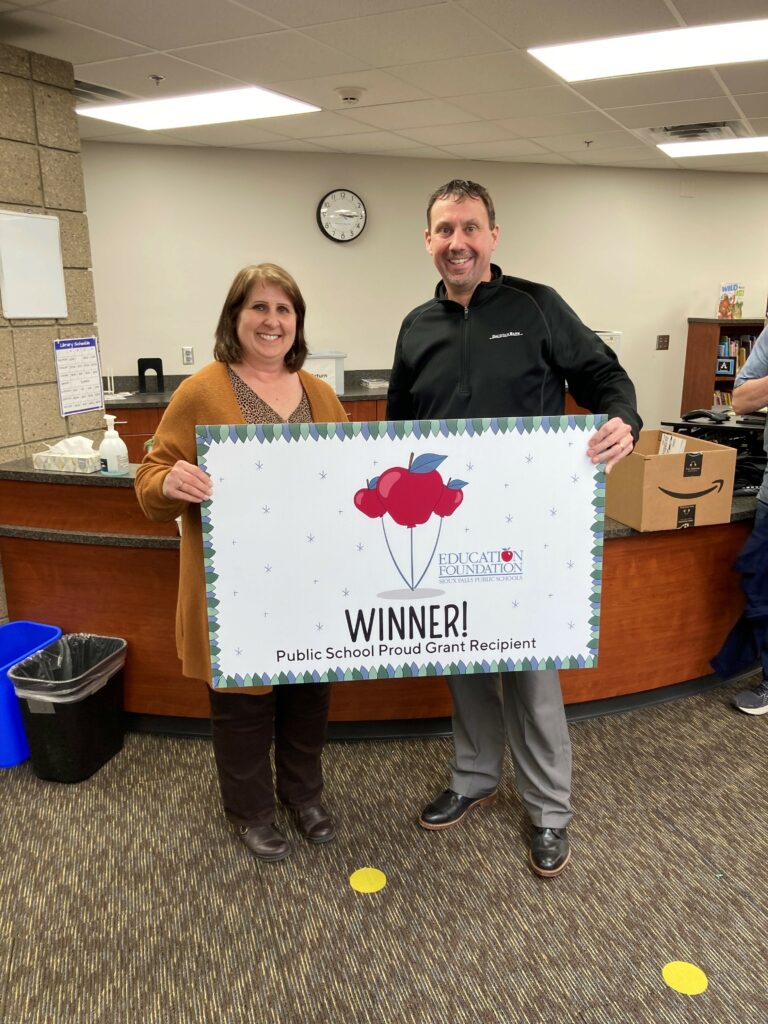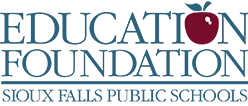Allyssa Krull, Josee Mendel, and Kelsey Pick received $2,034.35 for their grant, “Diversity Matters.” In the application, they wrote, “Our goal is to buy multicultural and diverse books that include characters and storylines with whom our students can connect. Our population has become more diverse, and we want books that reflect our students and their families. Classroom libraries are a place where we have the opportunity to represent the cultures, voices, histories, and languages of the children in our class. The addition of these texts will not only result in greater student reading engagement but will also show students that diversity matters. When children see themselves in the stories they read, that fosters a sense of belonging. More importantly, our students are validated by the acknowledgment and representation of their beliefs, feelings, abilities, and cultures. As our students see us, as teachers, embrace the unique experiences, strengths, and ideas of those around us, they learn to do the same.”
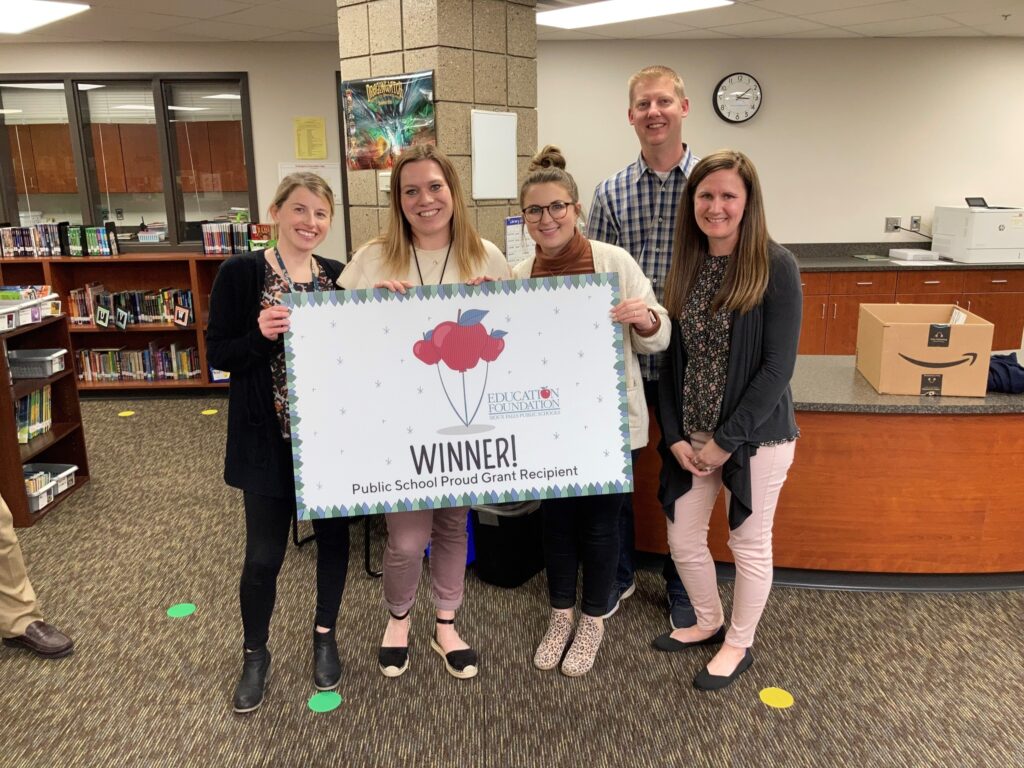
Sara Wiebelhaus received $616.73 for her grant, “Calm and Collected.” Sara will use the funds to purchase sensory and self-regulation materials, including STEM toys, modular sensory mats, kinetic sand, water beads, body socks, exercise mats, and special products for students with autism. This grant will support students throughout the building. In the application, she wrote, “Children with sensory processing issues often engage in behaviors that can be construed as negative actions as they seek to gain sensory regulation. Providing supports to these students creates a positive learning environment and allows children to self-regulate, reduce anxiety, and prepares them to participate in the classroom in a constructive manner. When they are overstimulated, they will have tools available to them, and we hope these materials lead to fewer office referrals. By meeting our students’ basic needs, we enable them to focus on the task at hand.”
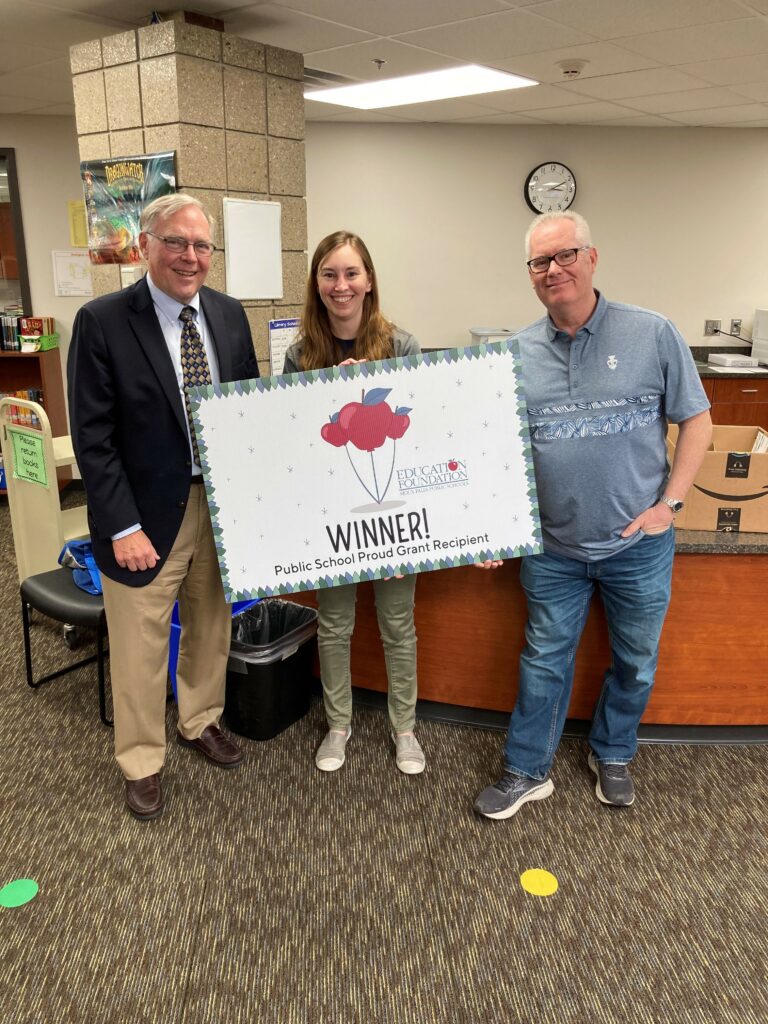
Jessica Goede, Lindsey Johnson, and Emily Stee received $3,000 for their proposal, “Addressing the Reading Crisis.” In the application, they wrote, “We are requesting decodable books for students in kindergarten, first grade, and second grade. Decodable books are texts that reinforce common sight words while systematically increasing the difficulty of the phonics within the text set. Unlike traditional guided reading or leveled texts, decodable books do not rely on guessing or contextualized reading strategies. Decodable books foster the developmental acquisition of phonics skills. They are enjoyable for young readers because they can decode and read the text without support. These books will give our students more choice and opportunity to apply their reading skills during individualized daily reading. By increasing the number of books appropriate for beginners, our youngest and most struggling readers will experience greater success and autonomy.”
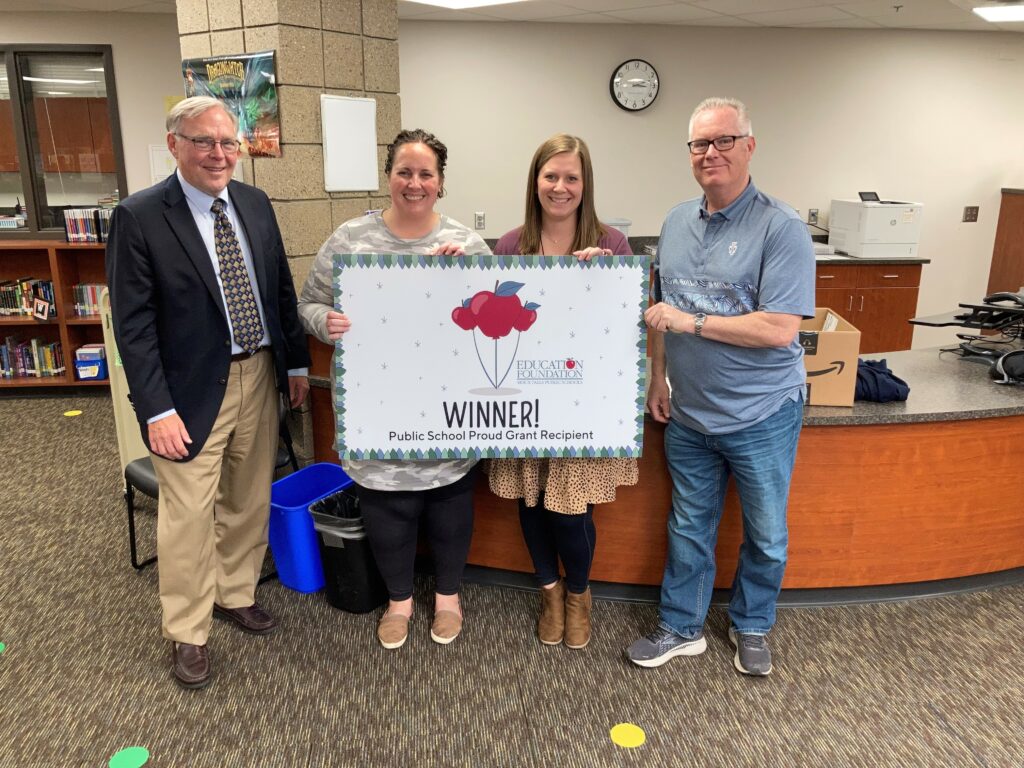
Amy Staples received $965.12 for her grant, “Putting Our Way Through PE.” With the funds, Amy will purchase 13 obstacles that can be found on a miniature golf course, oversized foam golf balls, and a storage cart. She wrote, “These obstacles are made of durable plastic that can be used indoors or outdoors to create obstacles for students to go around or putt into. The foam balls would provide my students with another golf ball option. By purchasing these obstacles, I can enhance how I teach striking with a long-handled implement, in this case using a golf putter. I will be able to quickly set up a variety of stations throughout the year that would bring obstacles found at a mini golf course to our gym. I know that some students do not have the opportunity to visit a mini golf course on their own, and this is one way for me to bring the experience to them at school.”
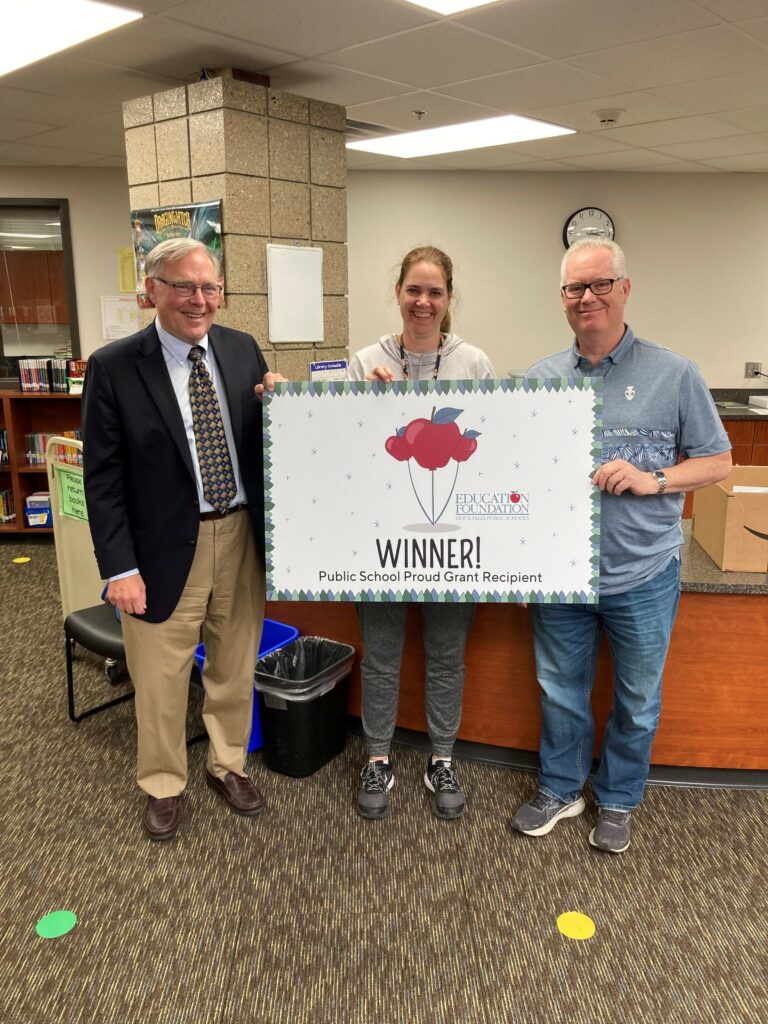
Peggy Andela received the final Public School Proud Grant at Oscar Howe. She will use $1,000 for her grant, “Decodable Books for Struggling Readers,” and the grant money will help her purchase hundreds of books for special education students in grades two through five. In the application, she wrote, “Student success in school starts with reading. When students can read, they are more likely to succeed, academically, socially, and emotionally. So often, struggling readers have limited choices of books at their level that are also of interest to them, especially to older readers at our school. With the addition of engaging and enriching decodable books, students will take an active role, and I expect to see them gain confidence in their reading abilities. By providing children with popular decodable books, we give them an opportunity to increase their vocabulary and improve their reading skills, setting them up for lifelong success.”
